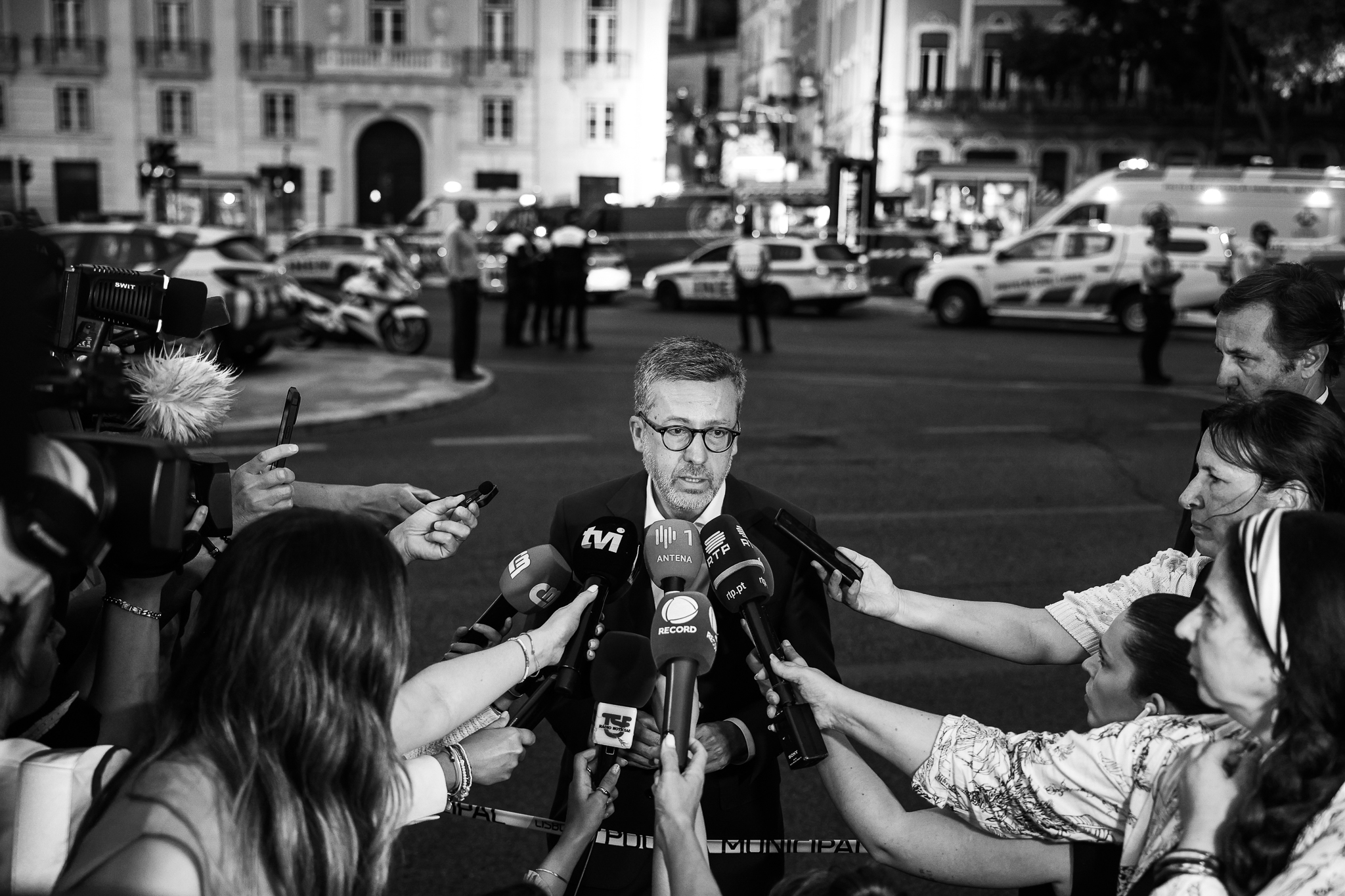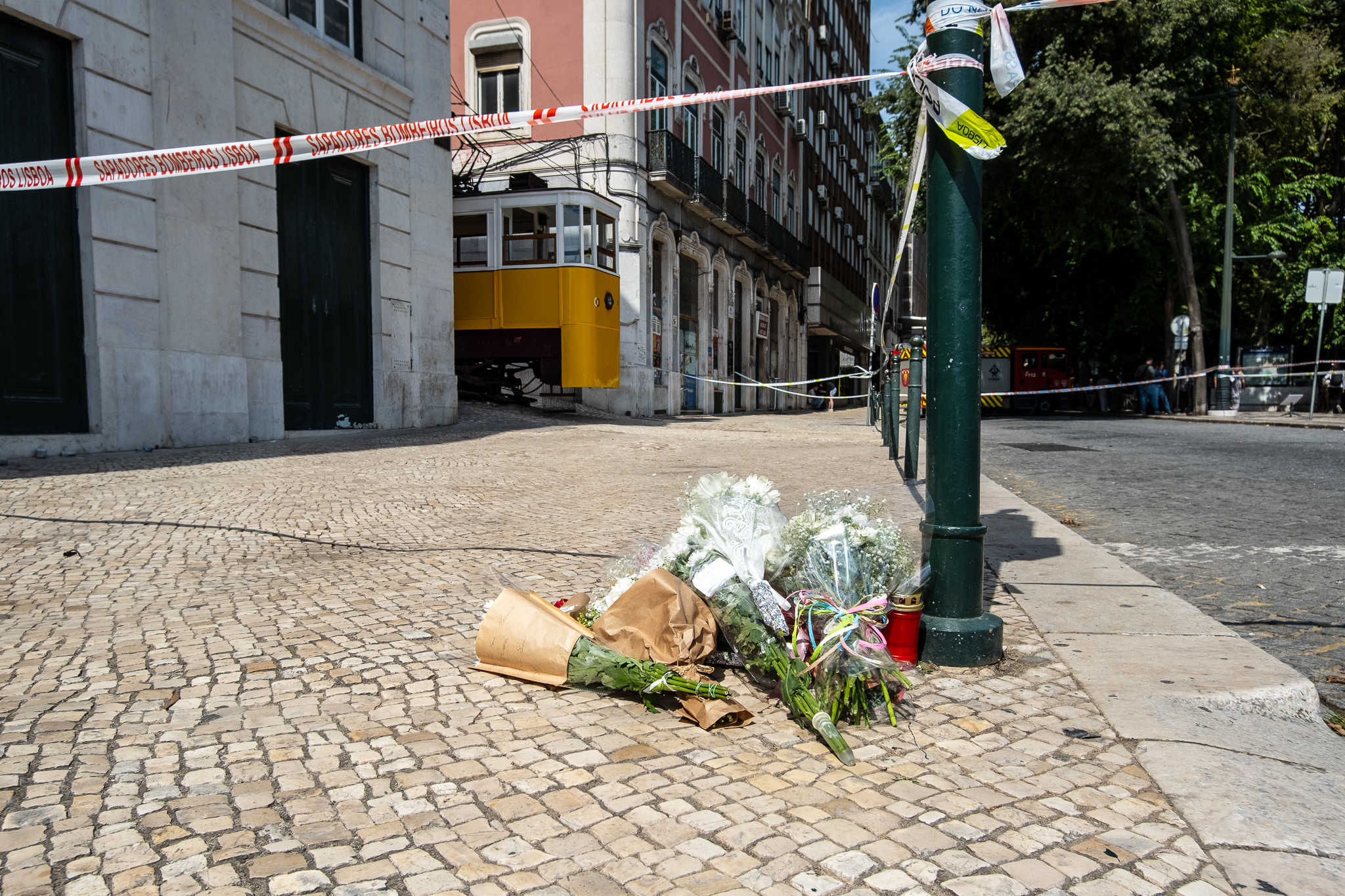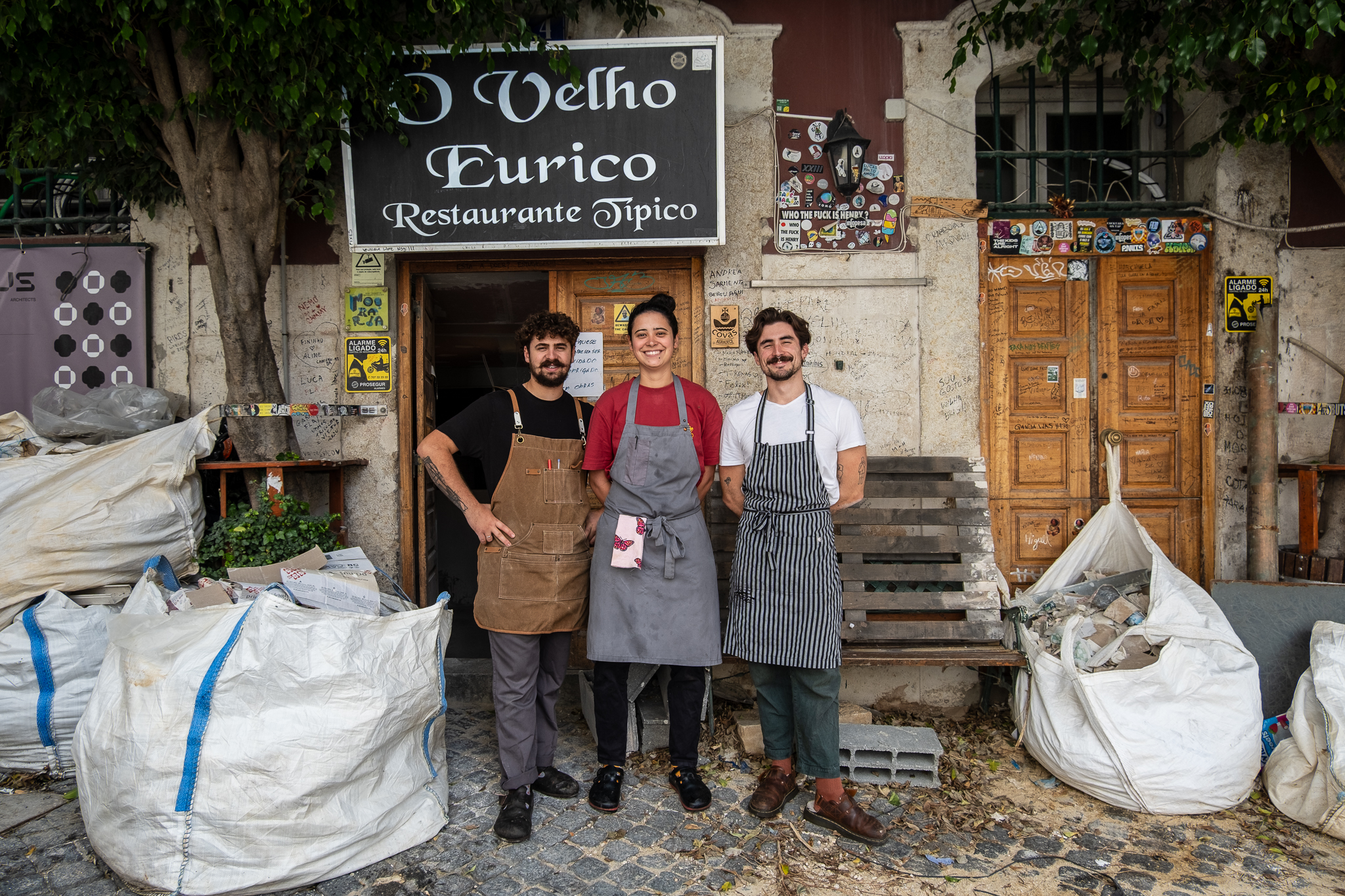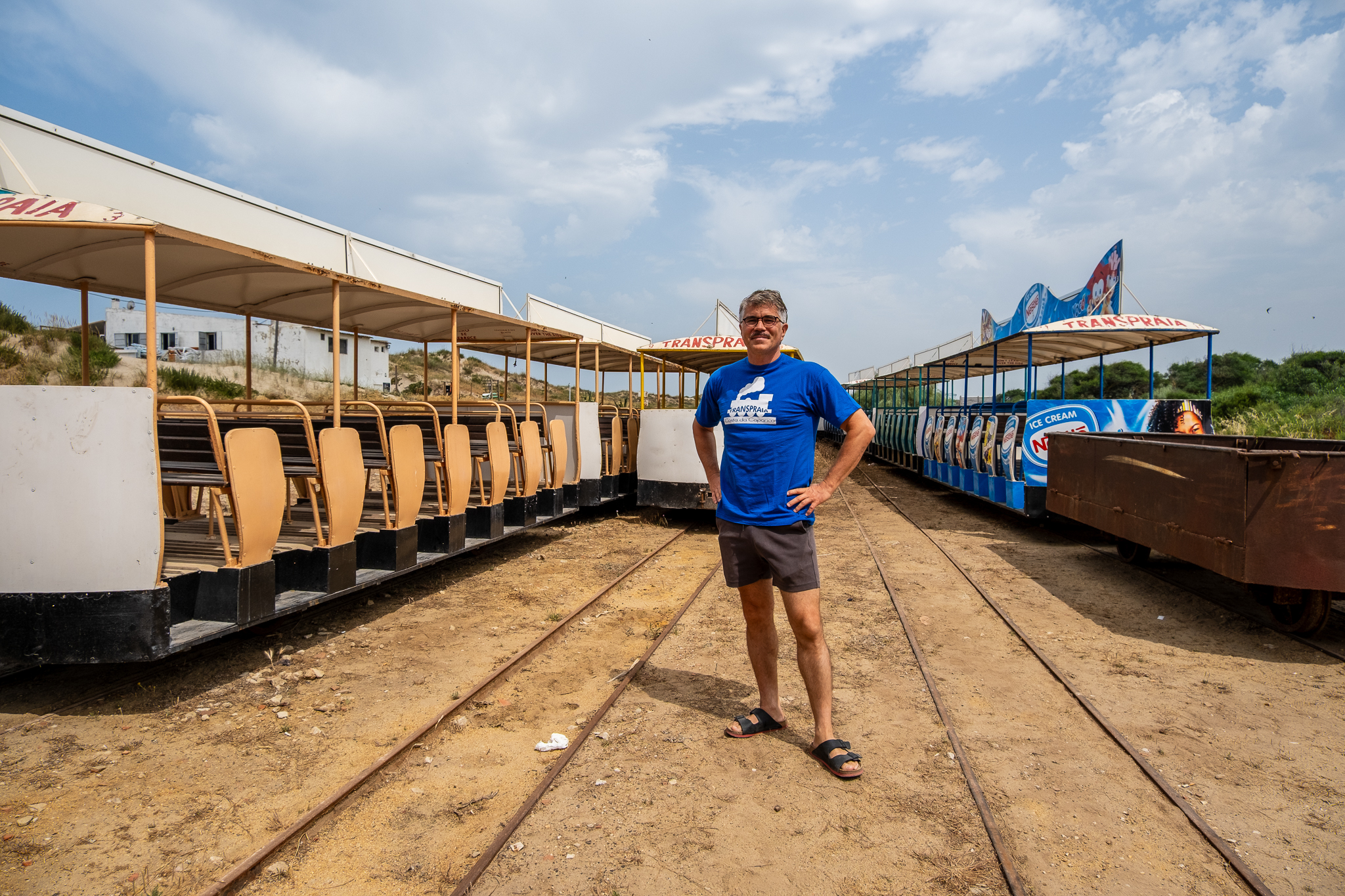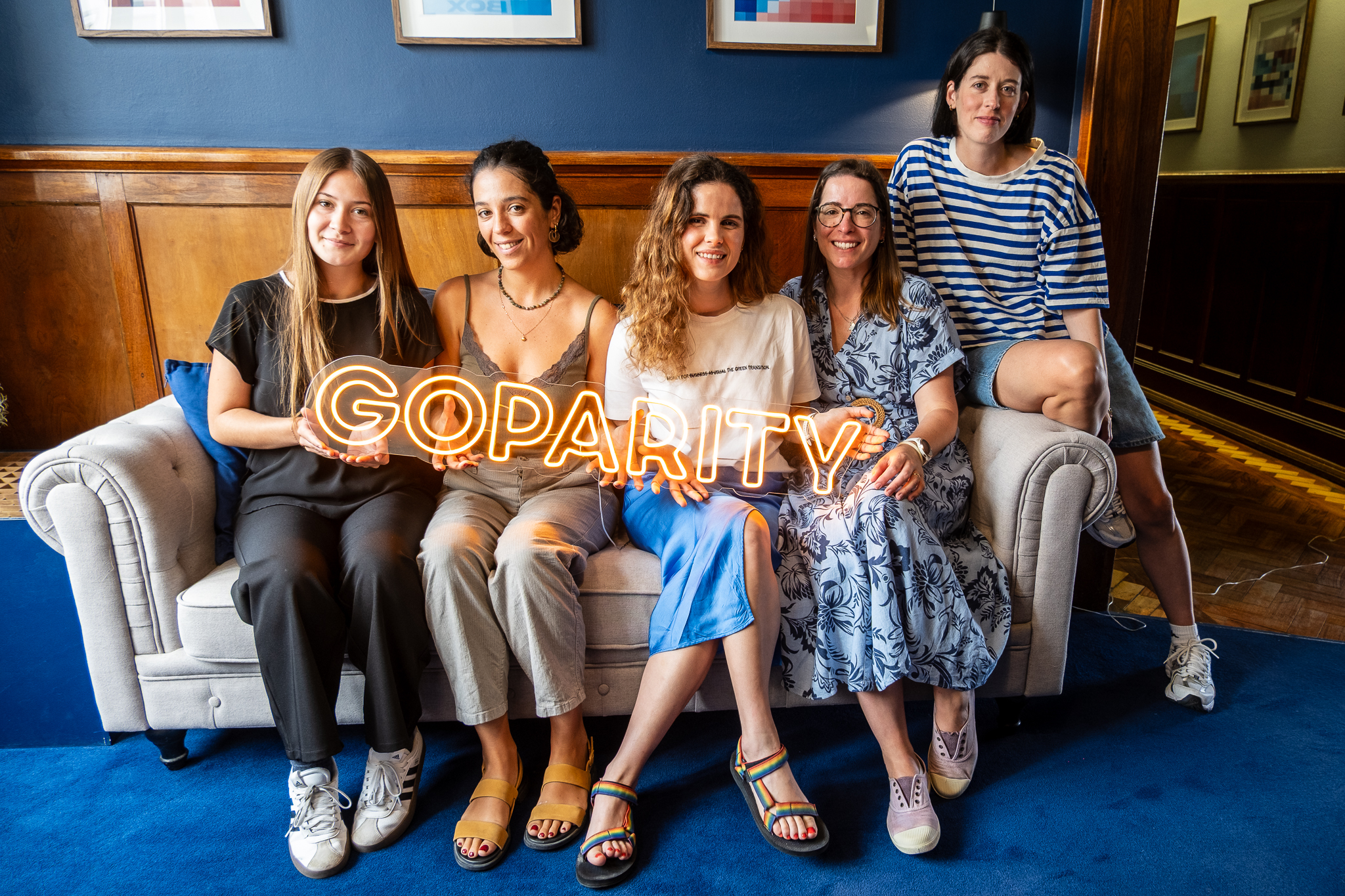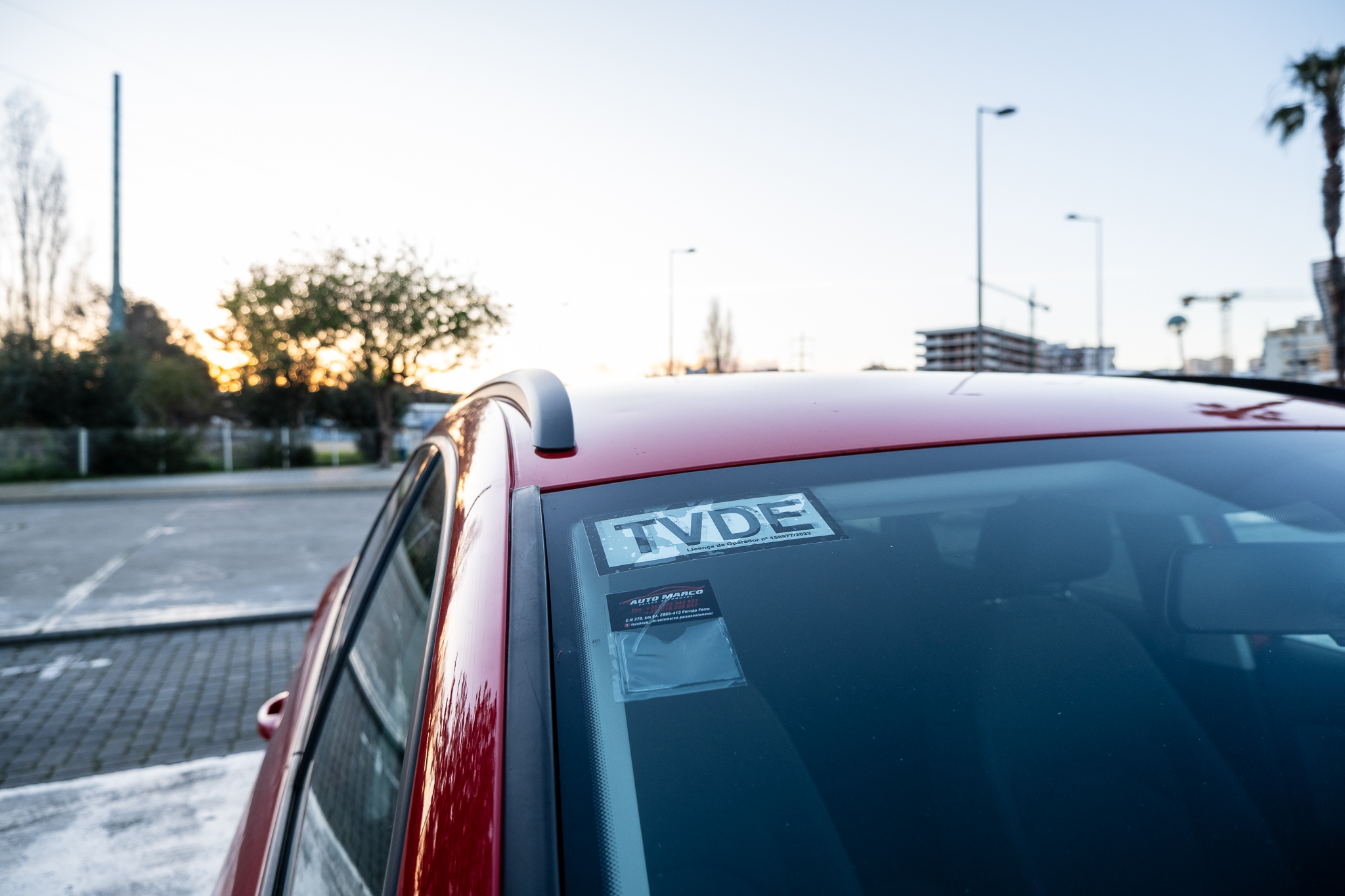This is the first of four stories of women cyclists in Lisbon that we will be publishing over the coming weeks.
Luzia Borges
49 years old, Dafundo
"Perhaps I also feel condescension for being a woman, as if being a woman is of such fragility that it's almost a sign of madness to walk on the road-that 'they're putting themselves in the way' and 'then don't complain if they get run over.'"

Lisboa Para Pessoas publishes four stories of women in Lisbon who make the bicycle their preferred means of transportation. A partnership with MUBi - Association for Urban Mobility on Bicycles and your project +MAP - More Women on Bikes.
We begin with the story of Luzia Borges.
What is your experience with cycling in the city?
It's not always easy. I commute since June 2021 by bike to work (in Alcântara) and I have no bike lane available except for a small section in Algés, which ends with no options other than the sidewalk, which is prohibited for bicycles. Still, I do part of the ride to the CCB and then back on the road to my workplace. Fortunately I have a bicycle park in the garage of my institution and I feel quite safe leaving my bike there. cargobike for 8, 12 or more hours. When I return, that's when I feel more insecure. Not that I feel threatened by gender harassment (it never happened), but, yes, at the level of physical integrity by the raid of several carsmany on purpose, when I ride along the Avenida da Índia until I get out almost in Algés to pick up my eight-year-old daughter from school (who I carry on my bicycle) on my way home. The ride home from school is not peaceful either; there is no option but the road and there is a long climb we have to make from Algés to the top of Dafundo.


What worries me most are the raids, the dangerous overtaking, the speeding of most cars. I have had some scares, but I make it a point to earn my space, and i know that my resilience makes motorists get used to the presence of bicycleswhich, I notice, are more and more. Just to point out that once or twice a week I have to go to the Red Cross school to give lessons, and the route along Avenida de Ceuta is very unsafe indeed - I've already had one incident that could have gone quite badly.
Main difficulty: lack of civility and ignorance (bicycles can ride on the road and some people think they can't).
Council: not to give up - we have this right and it is an immense freedom.
Tell us about how your gender has conditioned, or not, that experience.
I confess that I don't think about it much. When I want to do something I do it. But I remember that I decided to go by bike to an appointment near Alvalade and, on the way back, late at night (it would be about 9:30pm), the application I use, the Komoot GPS, sent me through long bike paths, open fields, followed by a residential area that seemed unsafe to me, with boys and men on the street, who messed with me as I passed. I thought about the fragility of being alone with a bike, that they could mug me and take everything. Anyway, what I took from this experience was the need to study the circuits better.


If you consider that it has conditioned, what situations have you experienced, when using the bicycle, where you felt somehow unequal, unsafe or lack of access because you are a woman?
I haven't felt much inequality, I think motorists are just as aggressive towards men as they are towards women. Of course there is a huge inequality between cars and bicycles, the lobby is clearly powerful. Only once did someone say to me "go for the ride", and I didn't, but I felt like saying in the same style "go back to the cave".... Insecurity, yes, many times, especially in the raids to which I am subjected, which I understand as warnings, especially on roads where, even though the limit is 50 km/h, the cars are speeding. There is still a lot of lack of civility and, at the same time, ignorance.
But perhaps I also feel condescension for being a woman, as if being a woman is of such fragility that it is almost a sign of madness to walk on the road - that "they are putting themselves in the way" and "then don't complain if they get run over". As I said, I am keen to earn my space on the road, but I believe that many women would be frightened and might even give up. Ideally, there would be bike lanes; at the same time, it would be good to implement ways of controlling the speed limit in the city.


From your perspective, what is missing for more women to regularly use the bicycle as a mode of transportation?
Clearly more bike lanes and more access to information. Women understand that it is possible to change the paradigm, that if they have an electric bicycle they won't feel the need to shower at work, that they will live better, be more toned (physical exercise), that they will gain quality of life, that they won't waste hours in traffic jams, that they will walk lighter, and that their children will be happier, even on rainy days.
The lack of bike parks doesn't help. There is also a lack of information about the safest ways to get around and information about where to park.especially when driving at dusk or at night.
Launched on March 8th, the project +MAP - More Women on Bikes is an initiative of MUBi - Association for Urban Mobility on Bicycles which aims to function as a meeting point around gender issues - a space where you can talk about the evident gaps in women's bicycling, and break down prejudices and social obstacles.

